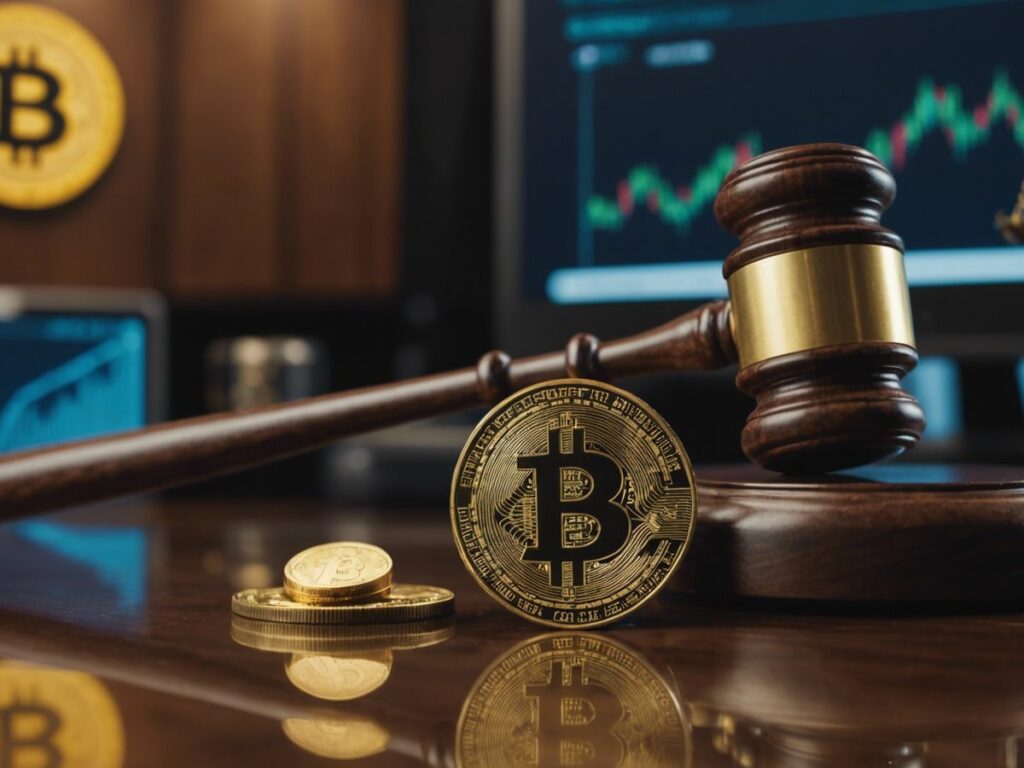The U.S. Securities and Exchange Commission (SEC) has launched lawsuits against two of the world’s largest cryptocurrency exchanges, Binance and Coinbase, marking a significant shift in the regulatory landscape for the crypto industry. These legal actions have far-reaching implications for the future of digital assets and their regulation in the United States.
Key Takeaways
- The SEC has filed lawsuits against Binance and Coinbase, accusing them of operating unregistered exchanges and other regulatory violations.
- The lawsuits have led to significant market reactions, including withdrawals and delistings of certain cryptocurrencies.
- The outcome of these lawsuits could shape the future regulatory framework for the crypto industry in the U.S.
SEC vs. Binance: Serious Allegations
On June 5, 2023, the SEC filed a lawsuit against Binance, accusing the exchange of multiple violations, including:
- Running an unregistered exchange and allowing U.S. investors to trade cryptocurrencies.
- Selling Binance-owned cryptos BNB and BUSD stablecoin.
- Offering staking and profit-generating programs like BNB Vault and Simple Earn.
- Misrepresenting investor protection controls on the Binance.US platform.
- Using customer funds for its own interests, similar to the allegations against the now-defunct FTX exchange.
The SEC’s lawsuit against Binance is expected to extend well into 2024. Binance has already agreed to pay a $4.3 billion fine to settle charges from other U.S. regulatory bodies, leading to the resignation of its CEO, Changpeng Zhao.
SEC vs. Coinbase: Compliance Under Scrutiny
A day after filing the lawsuit against Binance, the SEC charged Coinbase with operating as an unregistered securities exchange, broker, and clearing agency. The SEC also took issue with Coinbase’s staking-as-a-service program and its marketing campaigns that positioned the exchange as compliant with U.S. laws.
Coinbase has responded by filing a motion to dismiss the lawsuit, arguing that the SEC has not provided clear guidelines on which cryptocurrencies are considered securities. The case is also expected to extend into 2024.
Market Reactions
The cryptocurrency market has shown resilience despite the SEC’s actions. While top cryptocurrencies like Bitcoin (BTC) and Ether (ETH) quickly rebounded from initial sell-offs, other cryptos identified as securities by the SEC, such as Solana (SOL), Cardano (ADA), and Polygon (MATIC), faced selling pressure.
Robinhood, a popular trading app, announced it would end support for Cardano, Polygon, and Solana, citing the SEC’s lawsuits as the reason for the delisting.
Future of Crypto Regulation
The SEC’s aggressive stance has led to calls within the crypto industry for clearer regulations. Some experts suggest that cryptocurrencies should be regulated by the Commodity Futures Trading Commission (CFTC) rather than the SEC, to avoid the stringent disclosure requirements associated with securities.
The outcome of these lawsuits could set a precedent for how cryptocurrencies are regulated in the U.S., potentially leading to a more structured and safer environment for investors.
Conclusion
The SEC’s lawsuits against Binance and Coinbase mark a pivotal moment for the crypto industry. As these cases unfold, they will likely shape the future regulatory landscape for digital assets in the United States. While the immediate market reactions have been mixed, the long-term implications could lead to a more robust and transparent crypto ecosystem.
Sources
- SEC vs Binance, Coinbase, Kraken Lawsuits Usher Tough New Era, Techopedia.
- Breaking: Coinbase Sued by SEC Just a Day After Binance Lawsuit – Which Firm is Next?, Cryptonews.
- Robinhood will end support for 3 tokens named in SEC lawsuits, Cointelegraph.
- Full List of Cryptos Named Securities in SEC Lawsuits, BeInCrypto.
- Binance, Coinbase head to court; the SEC labels 67 crypto-securities, Cointelegraph.
